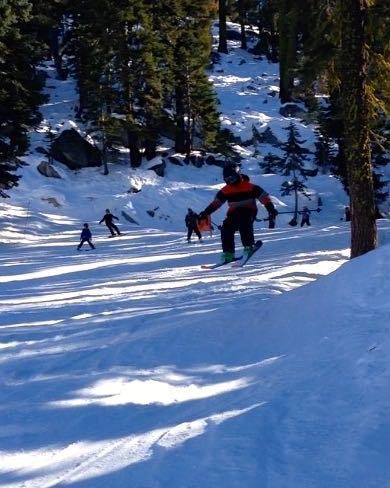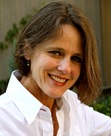Lisa Bennett's Blog, page 5
April 20, 2015
Talking about Climate Change
The power of saying “I am worried about how climate change will affect my kids.”
A new poll released today by the Yale Project on Climate Change Communication reveals that Americans rarely–very rarely–hear people they know talk about climate change and surprisingly few hear about it on a weekly basis in the news media.
Anthony Leiserowitz, Ph.D., Director of the Yale Project on Climate Change Communication, writes:
“Our survey finds, for example, that only 40% of the American public says they hear about global warming in the media at least once a month and only 19% hear about it at least once a week. Further, only 16% say that they hear people they know talk about global warming at least once a month, with only 4% reporting they hear other people talking about it at least once a week.”
Only 4 percent of Americans hear people they know talk about climate change on a weekly basis.
Is it any wonder that Congress is not treating climate action as a priority? Or that–despite positive actions from the White House and many cities and a growing number of businesses–the United States has yet to definitively rally around what is if not the biggest threat, certainly one of the biggest threats to human health and well being?
My research has shown that there are many psychological and even cognitive reasons we humans, perhaps Americans in particular, resist thinking about climate change. It triggers fear. It appears overwhelming. It makes us feel relatively powerless in comparison. It has been made confusing. It still appears as a deceptively distant threat (although, here in California, that is changing by the day.) And, in many ways, the story of what is happening in our world has yet to be told in a manner that, rather than sounding depressing, inspires a sense of conviction and the will to act.
But if the vast majority of Americans are still not even talking about climate change, we will never break through these obstacles and put irresistible pressure on Congress and every other opponent to stop fighting all reasonable actions to combat climate change and finally take positive action–for the sake of their own children and grandchildren if no one else’s.
So how does this change? How do we change it?
As I have written elsewhere, the model of gay and lesbian Americans “coming out” is a good one. Not perfect but we don’t need perfect. We need action. And what gays and lesbians proved is that one-on-one communication is an deeply powerful tool for creating change.
The teenager, the mother, the husband, the actress, the Congressman, the Olympian, the football star–all the many people who said simply, “I’m gay,” changed the world. Their world, and our world. By making their issue personal, and taking one small brave step, they moved hearts and minds that may never have opened and changed in any other way.
That is what I believe all of us who are concerned about climate change need to do–in addition to all the other necessary political and practical actions.
Teenagers, parents, celebrities, politicians, teachers, sports stars, everyone needs to find a way to say what they think about climate change to someone else: friends, family members, clergy, neighbors, representatives.
It can be as simple as: I am worried about how climate change will affect my kids.
Some people hesitate about saying even that because they think they will then need to have answers to questions such as: So what can we do about it? But getting more of a public conversation going on climate change doesn’t require having all the answers (although they are there to be had for those who want them.) It’s enough to know this: Our nation needs to do more to transition off the oil and coal that cause climate change and transition to solar, wind and other forms of clean energy.
That’s it. We don’t all have to be experts on climate change. Few of the people who helped change society for gay and lesbian Americans were experts. They didn’t have to be. Sometimes, keeping it simple is important. And they knew, quite simply, what mattered and what was right: Equality.
On climate change, we can also know what matters and what is right–which is again: Fairness. Every generation has a responsibility to preserve a healthy world for every future generation.
And then we need to say it–not as a final step, of course, but as a necessary first step–so many more than 4 percent of Americans will hear people they know talking about the need for climate action, and join in.
Filed under: Inspiring Social Change, Parenting in a Mixed-up World, Resilience Tagged: climate change, climate communications, coming out, environment, gay rights, nature, social change, Yale







Why “Come Out” on Climate Change
A new poll released today by the Yale Project on Climate Change Communication reveals that Americans rarely–very rarely–hear people they know talk about climate change and surprisingly few hear about it on a weekly basis in the news media.
Anthony Leiserowitz, Ph.D., Director of the Yale Project on Climate Change Communication, writes:
“Our survey finds, for example, that only 40% of the American public says they hear about global warming in the media at least once a month and only 19% hear about it at least once a week. Further, only 16% say that they hear people they know talk about global warming at least once a month, with only 4% reporting they hear other people talking about it at least once a week.”
Only 4 percent of Americans hear people they know talk about climate change on a weekly basis.
Is it any wonder that Congress is not treating climate action as a priority? Or that–despite positive actions from the White House and many cities and a growing number of businesses–the United States has yet to definitively rally around what is if not the biggest threat, certainly one of the biggest threats to human health and well being?
My research, like that of others, has shown that there are many psychological and even cognitive reasons we humans, perhaps Americans in particular, resist thinking about climate change. It triggers fear. It appears overwhelming. It makes us feel relatively powerless in comparison. It has been made confusing. It still appears as a deceptively distant threat (although, here in California, that is changing by the day.) And in many ways, the story of what is happening in our world has yet to be told in a manner that, rather than sounding depressing, inspires a sense of conviction and the will to act.
But if the vast majority of Americans are still not even talking about climate change, we will never break through these obstacles and put irresistible pressure on Congress and every other opponent to stop fighting all reasonable actions to combat climate change and finally take positive action–for the sake of their own children and grandchildren if no one else’s.
So how does this change? How do we change it?
As I have written elsewhere, the model of gay and lesbian Americans “coming out” is a good one. Not perfect but we don’t need perfect. We need action. And what gays and lesbians proved is that one-on-one communication is an deeply powerful tool for creating change.
The teenager, the mother, the husband, the actress, the Congressman, the Olympian, the football star–all the many people who said simply, “I’m gay,” changed the world. Their world, and our world. By making their issue personal, and taking one small brave step, they moved hearts and minds that may never have opened and changed in any other way.
That is what I believe all of us who are concerned about climate change need to do–in addition to all the other necessary political and practical actions.
Teenagers, parents, celebrities, politicians, teachers, sports stars, everyone needs to find a way to say what they think about climate change to someone else: friends, family members, clergy, neighbors, representatives.
It can be as simple as: I am worried about how climate change will affect my kids.
Some people hesitate about saying even that because they think they will then need to have answers to questions such as: So what can we do about it? But getting more of a public conversation going on climate change doesn’t require having all the answers (although they are there to be had for those who want them.) It’s enough to know this: Our nation needs to do more to transition off the oil and coal that cause climate change and transition to solar, wind and other forms of clean energy.
That’s it. We don’t all have to be experts on climate change. Few of the people who helped change society for gay and lesbian Americans were experts. They didn’t have to be. Sometimes, keeping it simple is important. And they knew, quite simply, what mattered and what was right: Equality.
On climate change, we can also know what matters and what is right–which is again: Fairness. Every generation has a responsibility to preserve a healthy world for every future generation.
And then we need to say it–not as a final step, of course, but as a necessary first step–so many more than 4 percent of Americans will hear people they know talking about the need for climate action, and join in.
Filed under: Change, Children/Parenting, Climate change Tagged: climate change, climate communications, coming out, environment, gay rights, nature, social change, Yale







New Poll Reveals Why People Need to “Come Out” on Climate Change
A new poll released today by the Yale Project on Climate Change Communication reveals that Americans rarely–very rarely–hear people they know talk about climate change and surprisingly few hear about it on a weekly basis in the news media.
Anthony Leiserowitz, Ph.D., Director of the Yale Project on Climate Change Communication, writes:
“Our survey finds, for example, that only 40% of the American public says they hear about global warming in the media at least once a month and only 19% hear about it at least once a week. Further, only 16% say that they hear people they know talk about global warming at least once a month, with only 4% reporting they hear other people talking about it at least once a week.”
Only 4 percent of Americans hear people they know talk about climate change on a weekly basis.
Is it any wonder that Congress is not treating climate action as a priority? Or that–despite positive actions from the White House and many cities and a growing number of businesses–the United States has yet to definitively rally around what is if not the biggest threat, certainly one of the biggest threats to human health and well being?
My research, like that of others, has shown that there are many psychological and even cognitive reasons we humans, perhaps Americans in particular, resist thinking about climate change. It triggers fear. It appears overwhelming. It makes us feel relatively powerless in comparison. It has been made confusing. It still appears as a deceptively distant threat (although, here in California, that is changing by the day.) And in many ways, the story of what is happening in our world has yet to be told in a manner that, rather than sounding depressing, inspires a sense of conviction and the will to act.
But if the vast majority of Americans are still not even talking about climate change, we will never break through these obstacles and put irresistible pressure on Congress and every other opponent to stop fighting all reasonable actions to combat climate change and finally take positive action–for the sake of their own children and grandchildren if no one else’s.
So how does this change? How do we change it?
As I have written elsewhere, the model of gay and lesbian Americans “coming out” is a good one. Not perfect but we don’t need perfect. We need action. And what gays and lesbians proved is that one-on-one communication is an deeply powerful tool for creating change.
The teenager, the mother, the husband, the actress, the Congressman, the Olympian, the football star–all the many people who said simply, “I’m gay,” changed the world. Their world, and our world. By making their issue personal, and taking one small brave step, they moved hearts and minds that may never have opened and changed in any other way.
That is what I believe all of us who are concerned about climate change need to do–in addition to all the other necessary political and practical actions.
Teenagers, parents, celebrities, politicians, teachers, sports stars, everyone needs to find a way to say what they think about climate change to someone else: friends, family members, clergy, neighbors, representatives.
It can be as simple as: I am worried about how climate change will affect my kids.
Some people hesitate about saying even that because they think they will then need to have answers to questions such as: So what can we do about it? But getting more of a public conversation going on climate change doesn’t require having all the answers (although they are there to be had for those who want them.) It’s enough to know this: Our nation needs to do more to transition off the oil and coal that cause climate change and transition to solar, wind and other forms of clean energy.
That’s it. We don’t all have to be experts on climate change. Few of the people who helped change society for gay and lesbian Americans were experts. They didn’t have to be. Sometimes, keeping it simple is important. And they knew, quite simply, what mattered and what was right: Equality.
On climate change, we can also know what matters and what is right–which is again: Fairness. Every generation has a responsibility to preserve a healthy world for every future generation.
And then we need to say it–not as a final step, of course, but as a necessary first step–so many more than 4 percent of Americans will hear people they know talking about the need for climate action, and join in.
Filed under: Change, Children & Parenting, Climate change Tagged: climate change, climate communications, coming out, environment, gay rights, nature, social change, Yale







April 7, 2015
Beyonce v. Putin
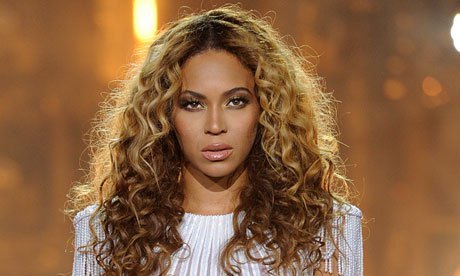 I was driving across the Bay Bridge into San Francisco recently with a colleague who said what so many of us have said in recent years, “It seems like the world is falling apart.”
I was driving across the Bay Bridge into San Francisco recently with a colleague who said what so many of us have said in recent years, “It seems like the world is falling apart.”
What seemed most threatening to him was the state of affairs in Russia — Putin, in particular. Others have pointed to warfare across the Mideast. Others the polarization in our own country, the justified lack of trust in government, the dumb decisions being made in the interest of maximizing corporate profits, the dubious state of education, growing economic inequality, health care, or climate change and all that ushers in.
It’s a pick-your-poison kind of moment. But whatever the issue that symbolizes it for each of us, we seem united at least in the sense that the world is falling apart.
And one other profound thing: We don’t know what to do about it.
All these frightening issues of the day loom large, while many of us feel terribly small in comparison. Loathe though we might be to say the word aloud, many of us feel powerless.
As the psychologist Philip G. Zimbardo told me once when I asked him why he thought more people didn’t take action on the particular issue that most concerns me: “Everybody is told they can make a difference, and nobody believes it.”
Afraid and powerless is an awful combination, especially when it seems other people, mainly the rich and famous, have all the power.
But there is another deep, perhaps less often spoken truth these days: And that is, we still want and need to make a difference.
It’s a universal human desire, beautifully given voice, for example, by Beyonce in the video, I Was Here, which she sang at the Untied Nations on World Humanitarian Day.
I just want them to know
That I gave my all, did my best
Brought someone some happiness
Left this world a little better just because
I was here.
So how do we balance our fear of the expression of reckless, destructive power with the beautiful human desire to make a positive difference — and show we were here?
The essential first step, I have come to believe, is, as in all things, to start small. Forget scale. Forget comparisons. Forget that self-defeating question about what difference will our act make in comparison to whatever the issue that concerns us? Because that will only lead us to one dark place: inaction. Just do one small thing. Don’t judge it. Just do it.
There’s a story the Buddhist teacher John Tarrant tells in his book, Bring Me the Rhinoceros, that speaks to the heart of this for me:
“A friend was in the Paris Metro when a disheveled man came onto the subway train…The man seemed to be drunk or deeply disturbed; his shirt was off, he was bleeding, and perhaps he had been beaten up. He was sweating, gesturing violently, and swearing at the young women in the car. As he spoke, saliva sprayed from his mouth. It was clear, my friend said, that he wanted something, but he was also a frightening apparition and the young people in the car made themselves small and pressed back against the sides of the car, hoping not to be noticed. My friend, who is Japanese and already small, was not sure she understood what as happening, so she followed their cue and shrank back with them.
“However, as the man stumbled along the aisle, an old woman whom nobody had noticed until that time reached up and took his hand. She tugged gently. His body followed her hand down, and he collapsed onto the seat beside her. As she held his head against her breast, he began sobbing. In this case, the appearance of the rhino [Tarrant’s word for what might be called the unexpected] changed things for everybody in the subway car: a moment of fear and danger became an occasion for kindness. Such a transformation is one of the truly creative acts a person can bring about.”
Here was one seemingly small, simple act of human kindness that changed things for others — and that was enough. We begin where we begin. We do what we can. And it all counts.
(This post originally appeared on Medium.)
Filed under: Buddhism, Change, Climate change, Overcoming fear, Power/Powerlessness, Social good Tagged: Beyonce, Buddhism, John Tarrant, Philip G. Zimbardo, power, powerlessness, Putin, social change, social good

On Beyonce, Putin and Breaking through Our Growing Illusion of Powerlessness
 I was driving across the Bay Bridge into San Francisco recently with a colleague who said what so many of us have said in recent years, “It seems like the world is falling apart.”
I was driving across the Bay Bridge into San Francisco recently with a colleague who said what so many of us have said in recent years, “It seems like the world is falling apart.”
What seemed most threatening to him was the state of affairs in Russia — Putin, in particular. Others have pointed to warfare across the Mideast. Others the polarization in our own country, the justified lack of trust in government, the dumb decisions being made in the interest of maximizing corporate profits, the dubious state of education, growing economic inequality, health care, or climate change and all that ushers in.
It’s a pick-your-poison kind of moment. But whatever the issue that symbolizes it for each of us, we seem united at least in the sense that the world is falling apart.
And one other profound thing: We don’t know what to do about it.
All these frightening issues of the day loom large, while many of us feel terribly small in comparison. Loathe though we might be to say the word aloud, many of us feel powerless.
As the psychologist Philip G. Zimbardo told me once when I asked him why he thought more people didn’t take action on the particular issue that most concerns me: “Everybody is told they can make a difference, and nobody believes it.”
Afraid and powerless is an awful combination, especially when it seems other people, mainly the rich and famous, have all the power.
But there is another deep, perhaps less often spoken truth these days: And that is, we still want and need to make a difference.
It’s a universal human desire, beautifully given voice, for example, by Beyonce in the video, I Was Here, which she sang at the Untied Nations on World Humanitarian Day.
I just want them to know
That I gave my all, did my best
Brought someone some happiness
Left this world a little better just because
I was here.
So how do we balance our fear of the expression of reckless, destructive power with the beautiful human desire to make a positive difference — and show we were here?
The essential first step, I have come to believe, is, as in all things, to start small. Forget scale. Forget comparisons. Forget that self-defeating question about what difference will our act make in comparison to whatever the issue that concerns us? Because that will only lead us to one dark place: inaction. Just do one small thing. Don’t judge it. Just do it.
There’s a story the Buddhist teacher John Tarrant tells in his book, Bring Me the Rhinoceros, that speaks to the heart of this for me:
“A friend was in the Paris Metro when a disheveled man came onto the subway train…The man seemed to be drunk or deeply disturbed; his shirt was off, he was bleeding, and perhaps he had been beaten up. He was sweating, gesturing violently, and swearing at the young women in the car. As he spoke, saliva sprayed from his mouth. It was clear, my friend said, that he wanted something, but he was also a frightening apparition and the young people in the car made themselves small and pressed back against the sides of the car, hoping not to be noticed. My friend, who is Japanese and already small, was not sure she understood what as happening, so she followed their cue and shrank back with them.
“However, as the man stumbled along the aisle, an old woman whom nobody had noticed until that time reached up and took his hand. She tugged gently. His body followed her hand down, and he collapsed onto the seat beside her. As she held his head against her breast, he began sobbing. In this case, the appearance of the rhino [Tarrant’s word for what might be called the unexpected] changed things for everybody in the subway car: a moment of fear and danger became an occasion for kindness. Such a transformation is one of the truly creative acts a person can bring about.”
Here was one seemingly small, simple act of human kindness that changed things for others — and that was enough. We begin where we begin. We do what we can. And it all counts.
(This post originally appeared on Medium.)
Filed under: Buddhism, Change, Climate change, Overcoming fear, Power/Powerlessness, Social good Tagged: Beyonce, Buddhism, John Tarrant, Philip G. Zimbardo, power, powerlessness, Putin, social change, social good

April 4, 2015
A Year to Live
“What would you do if you knew you only had a year to live?”
It is a question I have often asked myself when I’ve felt particularly adrift–or just overly caught up in the hyper distractibility of modern life.
I always find it clarifying. And, remarkably, the answers always come down to matters of love and letting go.
Letting go of the disappointments, resentments, fears—and especially, the fantasies about how I think life should be. Letting of the wish that someone or something would be different from the way he or she or it is. That I would be different from the way I am.
Love is always what’s left. Love is always the prize.
And the work, life’s work, I see in these moments, is letting go of the disappointments, fantasies and fears—which are the very things, the only things, that get in the way.
Here are three books I love that offer some inspiration on the topic:
 Teachings on Love, by Thich Nhat Hanh
Teachings on Love, by Thich Nhat Hanh
Radical Acceptance, by Tara Brach
The Wisdom of No Escape, by Pema Chödrön
And here’s one absolutely lovely conversation I heard recently between Buddhist teachers Sharon Salzberg and Robert Thurman on my favorite podcast: On Being with Krista Tippet.
Filed under: Buddhism, Happiness, Love, Personal Growth, Well being Tagged: Buddhism, Krista Tippet, letting go, Love, Pema Chodron, Robert Thurman, Sharon Salzberg, Tara Brach, Thich Nhat Hanh

March 26, 2015
5 Things Parents Should Know about Climate Change
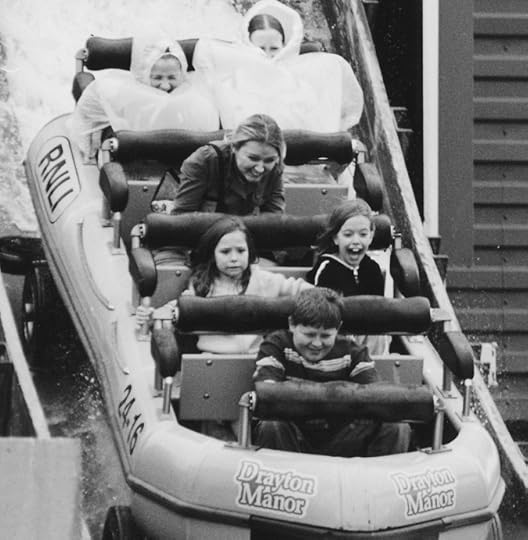
Martin Hartland
There is something about being a parent that makes us live very much in the moment and not think too much about the future–let alone truly imagine what our children’s lives will be like in 10, 20, 30 years down the road.
Yet these days, scientists and other experts are routinely presenting us with forecasts of the near future as a wildly chaotic one made up of more extreme snow and historic drought, unprecedented heat, a vanishing Arctic, super storms that flood major cities, rising seas that put the most coveted coastal homes under water and cause small island nations to disappear, and severe food and water shortages. It is a dizzying array of happenings that are hard to knit together into a coherent narrative, and hard not to shrink from because they seem so beyond our influence.
And still, as parents, we have routinely faced things we never thought we would and risen to the challenge time and again. So what if we ask the elephant-in-the-room question:
How do we raise children for a world in which,
as the experts put it, the “new normal” is no normal at all?
This is clearly a big question that deserves deep consideration. But in the interest of simply beginning a conversation, here are five modest ideas. They don’t presume that most parents will become political activists and take on the world. They are simply ways to begin to think about parenting and climate change in the same breath.
1. Know you can deal with this.
At some level, we are all climate deniers. Even if we recognize it is happening, many of us don’t want to think about it—or at least not for long. It’s so big, and we seem so small in comparison. “Flight” seems the more fitting response than fight. And if you really think about it personally—in terms of how climate change might affect your children—it may feel like more than you can bear. Certainly, I know I’ve had my moments of sheer terror, followed by, Oh shoot, I forgot to buy milk … because that’s life, too; and I don’t know about you but when something seems like more than I can handle, I tend to focus on something small and manageable. But I have also learned, especially from meeting and talking with hundreds of parents like me, that we can find our own way to let in the truth that climate change is a risk to our children–and move forward from there.
2. Know that you can’t know for certain what the future will hold but you can know that the “new normal,” as the experts say, is no normal at all—and preparing your children for that should be your focus.
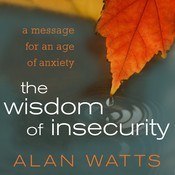 The first time I came across Alan Watts’ book, The Wisdom of Insecurity, I thought it the most ridiculous title I ever saw. But it was also intriguing because of that interesting phenomenon of feeling most alive when we don’t know—really don’t know—what will happen next. Because climate change encourages us to recognize that we are entering a very new stage of life on Earth that none of us have lived through before, it also invites us and our children to experience that vitality perhaps more than we do now. I do not mean to be glib about this. But this seems to me a piece of the truth—even as we need to help our children develop the self-reliance, resilience, and a sense of belonging they will need to deal with the uncertainty ahead.
The first time I came across Alan Watts’ book, The Wisdom of Insecurity, I thought it the most ridiculous title I ever saw. But it was also intriguing because of that interesting phenomenon of feeling most alive when we don’t know—really don’t know—what will happen next. Because climate change encourages us to recognize that we are entering a very new stage of life on Earth that none of us have lived through before, it also invites us and our children to experience that vitality perhaps more than we do now. I do not mean to be glib about this. But this seems to me a piece of the truth—even as we need to help our children develop the self-reliance, resilience, and a sense of belonging they will need to deal with the uncertainty ahead.
3. Know that cultivating self-reliance, resilience, and a sense of belonging will do your children good, no matter what happens.
Suppose some brilliant people figure out a solution to climate change, and other brilliant people figure out how to put those solutions in place. If you’ve taken the time to prepare your children for an uncertain future—which let’s face it, can be caused by any number of factors—one thing we can count on is that their development of self-reliance, resilience, and a sense of belonging will contribute to their well being.
4. Know there are ways to fortify yourself as you think about preparing your children for a changing world, and that you will need to do them.
I have spent the past 10 years thinking about how climate change could affect my children, and what I as a mother want to do about that—and I’ve learned that, sometimes, the most important thing I can do is stop thinking about it, and simply relish taking my youngest son to his baseball practice, taking my oldest out to dinner, or making them pancakes on a Saturday morning. I’ve also learned that deeper sustenance–whether it comes from spirituality, art, gardening or whatever nourishes you–is also called for. The point is you must take care of yourself and not be so serious for so long you are not even good company to yourself.
5. Know that there is good and bad in everything—even in facing the reality of a changing world and a changing climate.
 Anyone who has experienced a break up, a death in the family, or any other significant loss knows that even in sadness and grief, we often discover some light in the dark, some wonderful deepening that we likely would not have experienced any other way. And I have found that to be true in thinking about our changing world, as well. After all, it is when we no longer take something or someone for granted that we most deeply feel the preciousness of this passing thing called life.
Anyone who has experienced a break up, a death in the family, or any other significant loss knows that even in sadness and grief, we often discover some light in the dark, some wonderful deepening that we likely would not have experienced any other way. And I have found that to be true in thinking about our changing world, as well. After all, it is when we no longer take something or someone for granted that we most deeply feel the preciousness of this passing thing called life.
Clearly, these are only a few simple thoughts about a big complex issue. But I have found the inch-by-inch approach on this topic helps.
What do you think?
Filed under: Children & Parenting, Climate change, Resilience, Well being Tagged: Children, climate change, happiness, parents, resilience, self-reliance, the future, the new normal, uncertainty, well being

March 19, 2015
What Can a Mom Do When Climate Change Hits Home
My youngest son lives for skiing. It is, I know, a rather privileged hobby to have, and we are not a particularly well-off family. But when I took him at the age of 4 to ski for the first time in California’s Lake Tahoe, he showed me something that I’ll never forget.
I’d thrown out my back the day before our trip and couldn’t take him up the mountain as planned, and he’s not a group lesson sort of kid. So I stood at the bottom of the beginner’s hill, offered a few tips and then watched as he carried his skis all the way up the hill, skied down, then walked up the hill and did it again, and again, all day long — with an enormous smile on his face.
Now 10 years old, my son has far outpaced me. He sleeps with his skis in his bedroom. And, from November through April, he asks, every week, sometimes every day and several times a day: Can we go skiing? His combination of passion and skill has led me to do everything I can so he can do what he loves.
But this season, there has been far more at play than his desire and my ability to support his passion. Across California, the snowpack has been 25 percent of the historical average. The state’s $1.3 billion ski industry has been feeling it, with some resorts remaining closed and others closing for weeks at a time.
And just this month, as U.S. News & World Report reported, a new Stanford University study found a link between global warming and California’s historic drought, which has parched farmland, strained cities and shuttered seven ski resorts for lack of snow.
As a mother, these facts make my heart sink. For my son may be the most optimistic person I know but, eventually, he will have to reckon with the reality that skiing in California is changing — and not in ways skiers dream of.
So, what does a parent do when you know your child’s greatest love — the thing he imagines designing his future around — feels like it is slipping away because of something as seemingly out of our control as climate change?
This is a deeply profound question and not one that is easily answered. Indeed, for me, the question of how we as parents relate to the wide range of threats climate change poises to our children — many far more significant than dashed dreams of snow — is the question of a lifetime and the focus of my work.
But here are a 3 things I know:
1. I want to remain optimistic, but not foolishly so — for there is a fine line between optimism and wishful thinking, and wishful thinking will not protect our children.
2. I want to allow myself to get skillfully angry — because the alternative is a quiet despair and inaction, or the kind of talk that tends to get one dismissed as “shrill” or worse.
3. I want to take whatever action is open to me, and to support other individuals and organizations that are doing so — because we need each other. Climate change is simply too big to tackle in the solitude of our own minds and hearts.
That is why I was recently heartened to see so many California organizations have signed the Ceres Climate Declaration that calls on the U.S. Government to implement a national strategy to combat climate change. And it is why I just signed up myself.
No one action will, of course, combat a challenge as great as climate change. Nor will it roll back the clock on California’s historic drought. Addressing climate change is a great mountain we have to climb. But when I think about my young son carrying his skis up the hill that day, I am inspired. And when I take even another small step, I am reminded: Never underestimate the power and passion of a parent.
(Earlier versions of this post originally appeared on Moms Clean Air Force and The Huffington Post.)
Filed under: Children & Parenting, Climate change Tagged: California, Children, climate change, drought, Parenting, skiing

March 16, 2015
3 Insights Into Writing about Social Issues

Jane Austen’s Writing Desk by Holly Hayes
For the past ten years, I have been writing—and trying to write—about climate change. It’s a topic few of us really want to think about it but, as a Mom, I worried about what it would mean for my children’s future. Doing something felt like part of my job as a parent. And if I could inspire others to get engaged in climate action through my writing, I thought, that would be one, small good thing.
I was so wrong.
No matter how much I learned—about what can be done about climate change and, more significantly, how to use psychological, communications and brain science research to overcome the obstacles to our focusing on this issue—something in my writing just wasn’t working.
The problem, I discovered, was my motivation. By trying to inspire other people to get engaged in something that I was concerned about, I was caught in the trap of writing with an agenda. And while that might be appropriate for activist communications, it is not appropriate for personal essays, which is what interests me. There, few of us trust or, more fundamentally, like it.
To write effectively about any social issue (and perhaps especially one as controversial as this) I had to change my focus. I offer the three insights I uncovered here as guides to anyone else who might be struggling with a similar writing challenge.
1. Toss out your agenda.
I once met the poet Wendell Berry while reporting on a protest against mountaintop removal coal mining. It was a small, unusual protest. Berry and about three-dozen writers, farmers, former coal miners and activists were planning a sit-in in the Kentucky’s governor’s office. It was interesting, I thought, but from a practical standpoint, hopeless. So I asked Berry directly: “Do you really think this will make a difference?”
“I don’t know if it will make a difference,” he said. “But that is the wrong question. The right question is: Is it the right thing to do? I know it is the right thing to do.”
It was a simple, wise and empowering way to think about any action, including writing. And I took it to heart. Having an agenda—specifically, a goal of persuading others—meant my definition of success rested on something I could not control: how others responded. The better guide, I realized, was that simple question: Is it the right thing to do?
2. Be more humble.
To give myself a goal of influencing other people to take action on an issue I believed to be critically important made me feel as if I had the weight of the world on my shoulders. It also made me feel ridiculous, since I wasn’t, in fact, having an impact. This is a trap that both activists and people trying to write about social issues can easily fall into. It’s also as off-putting (and ineffective) as trying to address a relationship problem by trying to change your partner’s behavior instead of your own. If I hoped to write well and freely, I had to give up the arrogance that stemmed from focusing on other people and take a closer look at myself.
3. Be more honest.
In a moment of despair bred of one too many rejections, a wise friend asked me: Which is more important to you: To do something about climate change, or to be a writer? I didn’t have to pause to think. I am a writer, I said. And instantly, I realized I needed to approach the topic differently—not by trying to move other people to some desired end but by exploring as deeply as I could my own story about being a mother in the dawning age of climate change. This was a story of what it feels like to know that people we love are at risk of something we feel we cannot control. It meant diving deeper to be more honest, more real and more vulnerable.
So this is where I am at now. I do not yet have a finished product, or a sure-thing success story. But it is good to know the true story I want to tell—and to be reminded that a writer’s touchstone should never be persuasion but truth. And, for me, for now, that is enough.
This post originally appeared on JaneFriedman.com
Filed under: Change, Children & Parenting, Climate change, Writing Tagged: activism, climate change, family, Parenting, Wendell Berry, Writing

February 20, 2015
Ruth Bader Ginsburg on Social Change
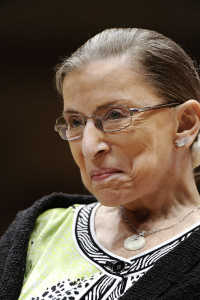
The Aspen Institute
The art of social change is simple in RBG’s view. Take the seismic change over the past 50 years on gay rights.
As Gail Collins writes in a piece about Ruth Bader Ginsburg in today’s The New York Times:
“The speed with which the country has already accepted gay rights was, she theorized, just a matter of gay people coming out, and the rest of the country realizing that ‘we all knew and liked and loved people who were gay.'”
And Ginsburg is, of course, right. That very human act of speaking a courageous truth is, and likely always will be, the most powerful force for change. And we should never lose faith in it.
That’s why I, like others, have suggested that we apply the same principles that have worked on gay rights to other important social and global issues, such as climate change.
In an article published in The Daily Beast, I identified seven lessons that climate activists could adapt from the gay rights movement, including:
1. Teach people how to talk about it.
2. Cultivate community.
3. Have a simple message.
4. Tell personal, inclusive stories.
5. Shatter stereotypes.
6. Focus on heartfelt values.
7. Be positive!
A bit more personally–OK, a lot more personally–is this piece I published on Medium: “Coming Out on Climate Change.” (CNN’s John Sutter also wrote an interesting piece last month under the same title.) Perhaps it could catch on.
What do you think?
P.S. Good to hear the 81-year-old Ginsburg plans to stick around for a while. Read Gail Collins’ article, “The Unsinkable R.B.G.”
Filed under: Change, Climate change, Communicating effectively Tagged: climate change, Gail Collins, gay rights movement, Ruth Bader Ginsburg, social change


